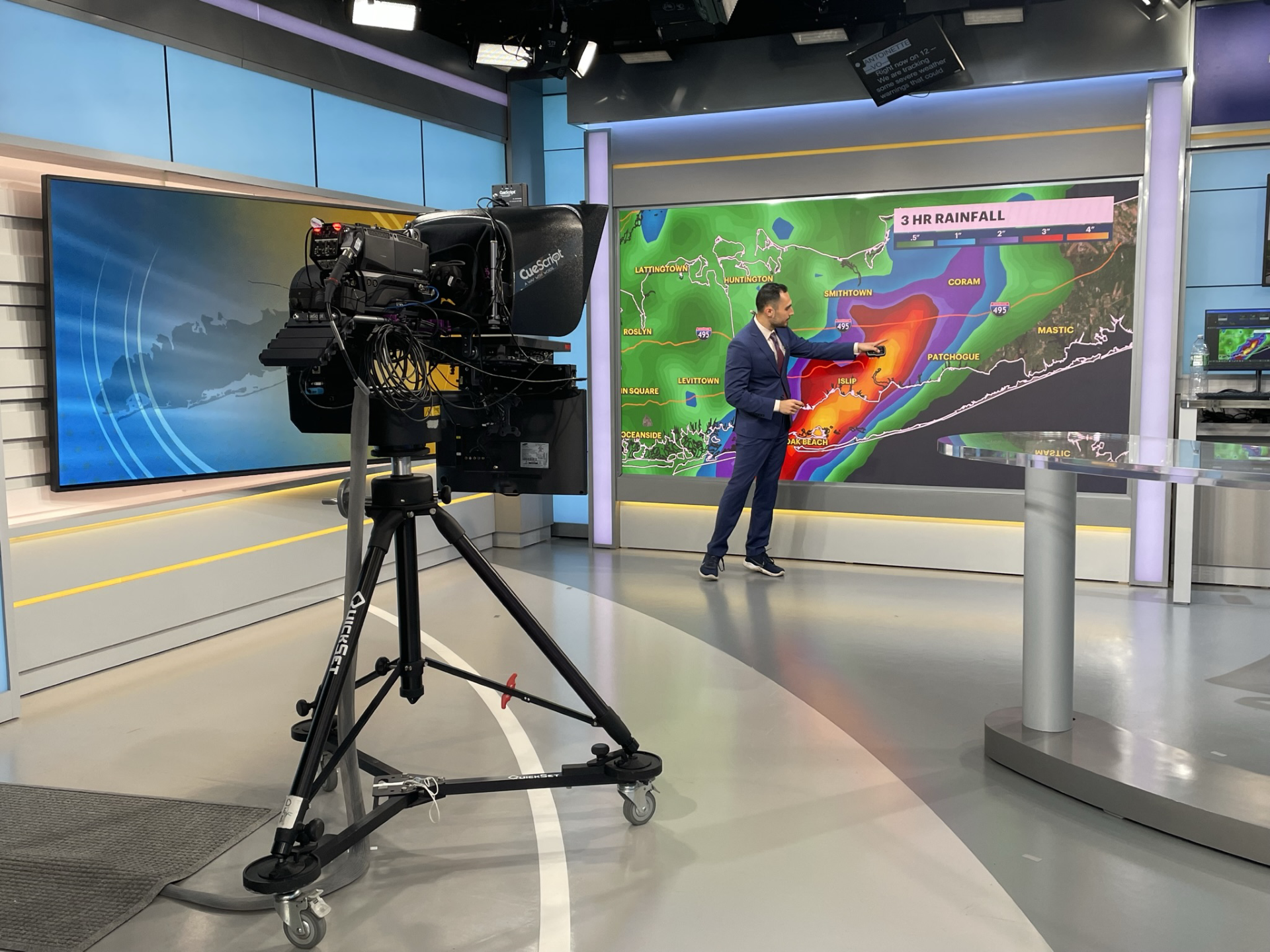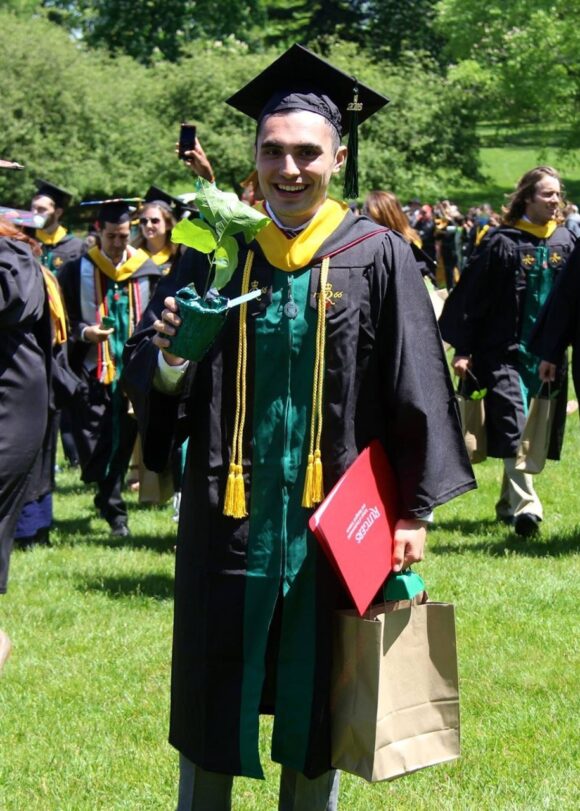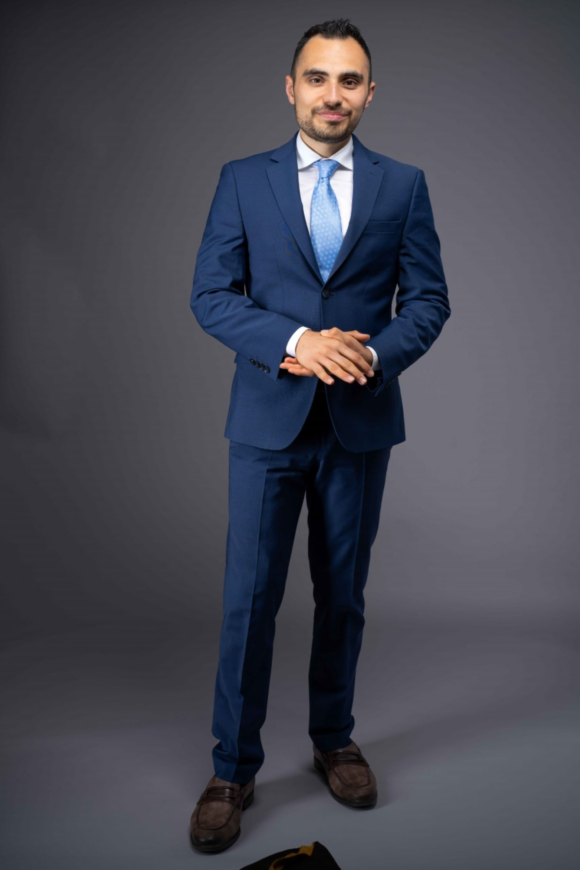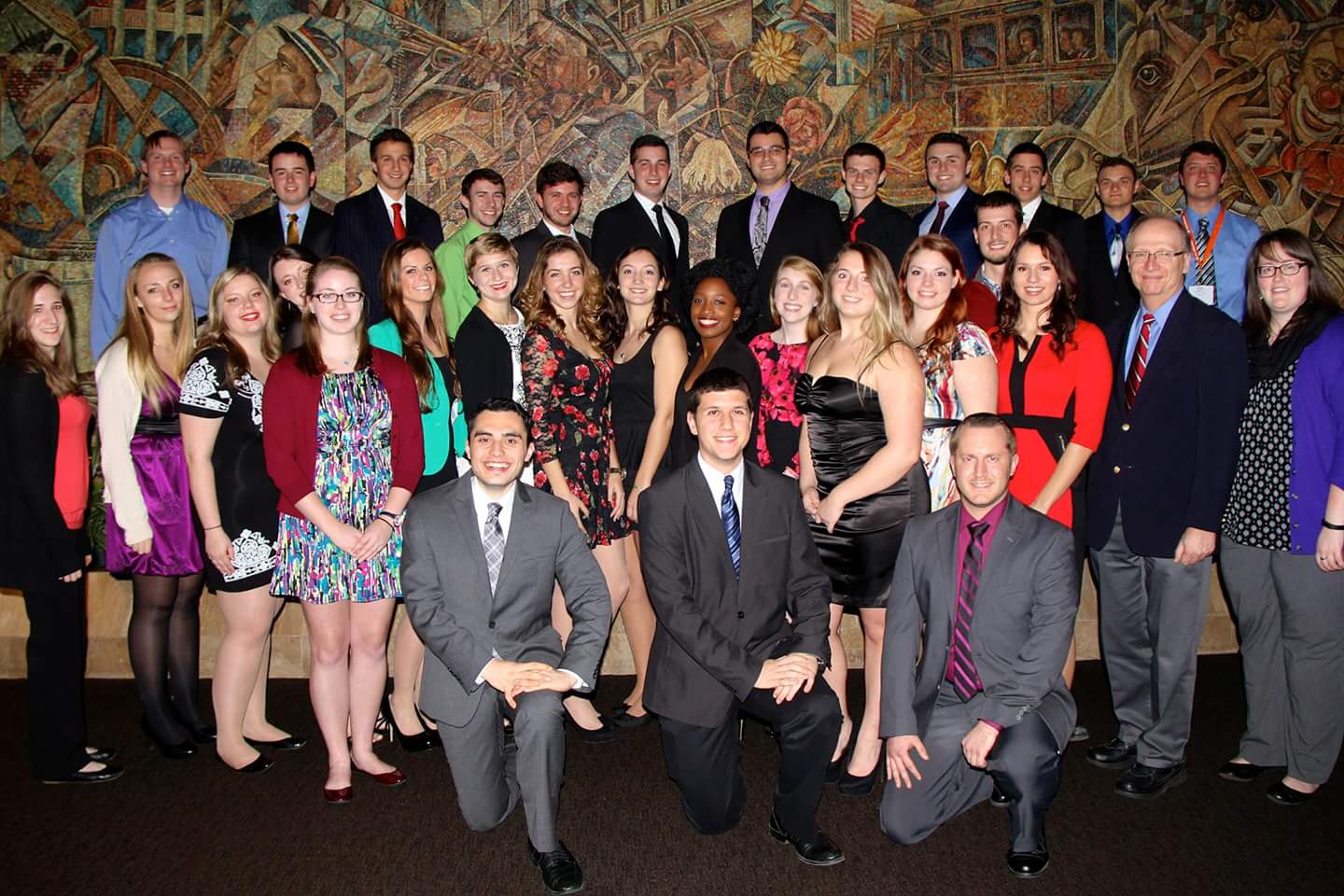
Alex Calamia (SEBS’16) at work at News 12 Long Island. Photo: Courtesy of Alex Calamia.
Alex Calamia (SEBS’16) is the Morning Meteorologist for News 12 based out of Long Island, NY. He’s also the creator and host of “Garden Guide,” a garden segment that empowers people to create the garden of their dreams with the local climate in mind.
He always knew he wanted to be a meteorologist. As he recalls, he and his family took trips to Florida every summer. “My favorite part was the plane ride there. I was glued to the window watching the building storms. When I was growing up, every morning my friends and family (even my teachers) would ask me what the weather was going to be like for the day.”

Alex Calamia at SEBS Convocation in 2016.
With such a strong fascination with weather that continued into high school, it’s easy to see why Meteorology was always his intended major at college. “I don’t think anyone was surprised that I would go to Rutgers to learn from the best!”
And Alex found the best, in his estimation, at the School of Environmental and Biological Sciences (SEBS). He capitalized on every available opportunity for experiential learning, including doing research.
“I worked on a personal research project with the state climatologist and all of my courses focused on analytical thinking. An academic highlight for me was the summer research field trip to the Midwest to study supercell thunderstorms and tornadoes. On the two-week trip, we created forecasts each morning and traveled across the Midwest to see these storms build and grow in person. (Yes, we did see a tornado!)
Alex also put in the time learning the ropes so that he could be prepared for life after college in the challenging profession he’s dreamt about since he was a child.
“I spent two years as a weather observer at Rutgers Gardens. It’s amazing that Rutgers had maintained weather data since 1896! It was an honor to be a part of this legacy. These observations are used to make daily forecasting models better and are an invaluable source of information for local research on climate change.”
He also spent four years in the WeatherWatcher program, which gives students a hands-on opportunity to forecast and present weather conditions using the same state-of-the-art technology that he uses daily in his career as a broadcast meteorologist.
Alex shares some important perspectives below as a relatively recent graduate of SEBS and an early-career professional.
What were the challenges you had to overcome to get to succeed and what tools you had to employ to stay focused?
The most important thing I learned was to learn how to ask for help. My courses were challenging, and I spent a lot of time showing up at office hours and staying a little longer after class to ask questions.
What advice would you offer current undergraduate students, in general?
 My biggest piece of advice is to branch out! There are so many opportunities at SEBS and across campus. I was president of the Meteorology Club, and I am so grateful for that leadership role. I recommend also seeking real life experience. I wish I had applied to more internships because that makes you a much stronger candidate when you’re looking for your first job.
My biggest piece of advice is to branch out! There are so many opportunities at SEBS and across campus. I was president of the Meteorology Club, and I am so grateful for that leadership role. I recommend also seeking real life experience. I wish I had applied to more internships because that makes you a much stronger candidate when you’re looking for your first job.
How would you describe your transition into the work world?
The transition was easy! I was given the same tools at Rutgers that I use every day in my career. I actually interned at News12, which is where I work now. I worked in jobs across the country before coming back home to News 12, so it was truly a homecoming to be back. I felt prepared to take on forecasting jobs in any climate because our department had such a diverse expertise. My course work prepared me to forecast weather in any part of the world.
Has your post-graduation career in Meteorology lived up to your expectations?
Absolutely! I couldn’t have imagined my career would be so fulfilling. It was difficult to break into the broadcast industry and land my first job. Every single step along the way got me to where I am now. I wouldn’t have done anything differently!
How did SEBS prepare you for success?
Rutgers has a great reputation across the country, so immediately prospective employers knew I had a solid academic foundation. I was exposed to so many tools and resources that were not only marketable, but truly made me a better meteorologist too.
Any advice for undergraduate who wish to follow in your footsteps to a career in Meteorology?
Reach out! We have a strong alumni network, and I’d be so happy to talk in detail about my career and experiences.

Alex Calamia (kneeling at left) and other Rutgers students belonging to the Meteorology Club attend the Annual American Meteorological Society Conference in 2016.

